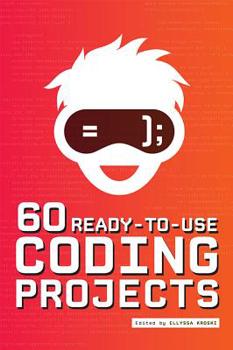60 Ready-To-Use Coding Projects
Select Format
Select Condition 
Book Overview
The lessons of ALA's Libraries Ready to Code initiative are conclusive: your library can make a difference in developing computational thinking in children, teens, and even adults. And you don't even need to be a techie to make it happen; in fact, many activities in this new book from tech champion Kroski dispense with a screen altogether in favor of twister boards, masking tape grids, or bowling pins. Other activities are built around affordable software or tech toys like Scratch Jr., Scratch, Bee-Bot, or Code-a-Pillar. Organized by age group, and complete with step-by-step guidance on everything from learning outcomes to an estimated budget, projects include
teaching coding to preschoolers with beads, pipe cleaners, and elastic string; choreographing music videos with Ozobots; programming Mad Libs-style games using Python; teaching algorithms with story mapping, pattern play, or mazes; using Scratch for digital dress-up or meme remixes; team-building and outreach with robots; drop-in programs for exploration and unstructured play; and teaching adults with Lynda.com or Meetup partners.This book's structured presentation will help both school librarians and programming staff at public libraries quickly scan for projects that fit their needs.
Related Subjects
Language Arts




